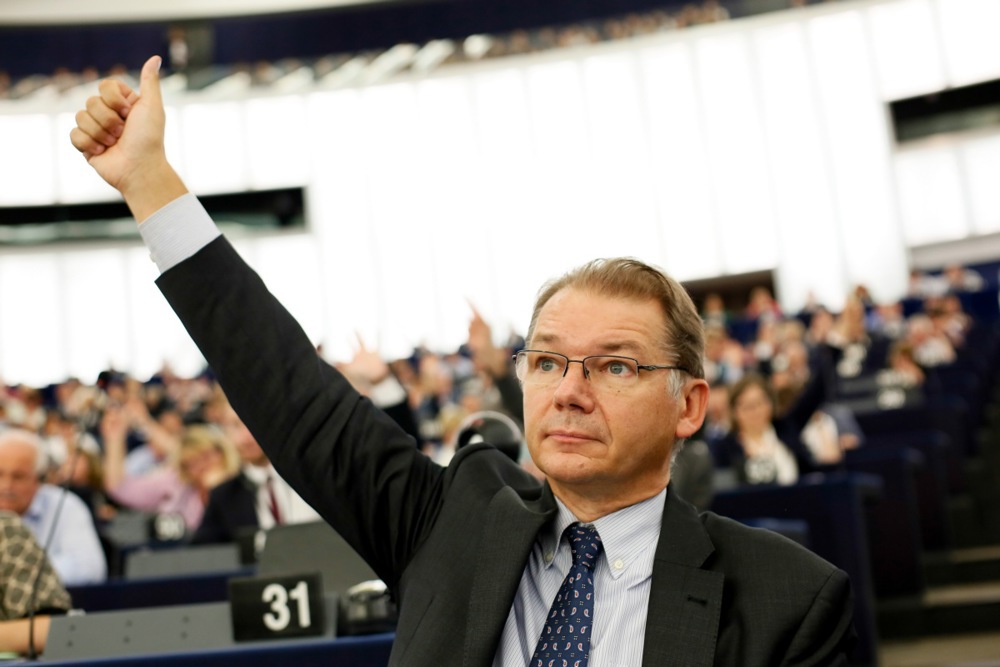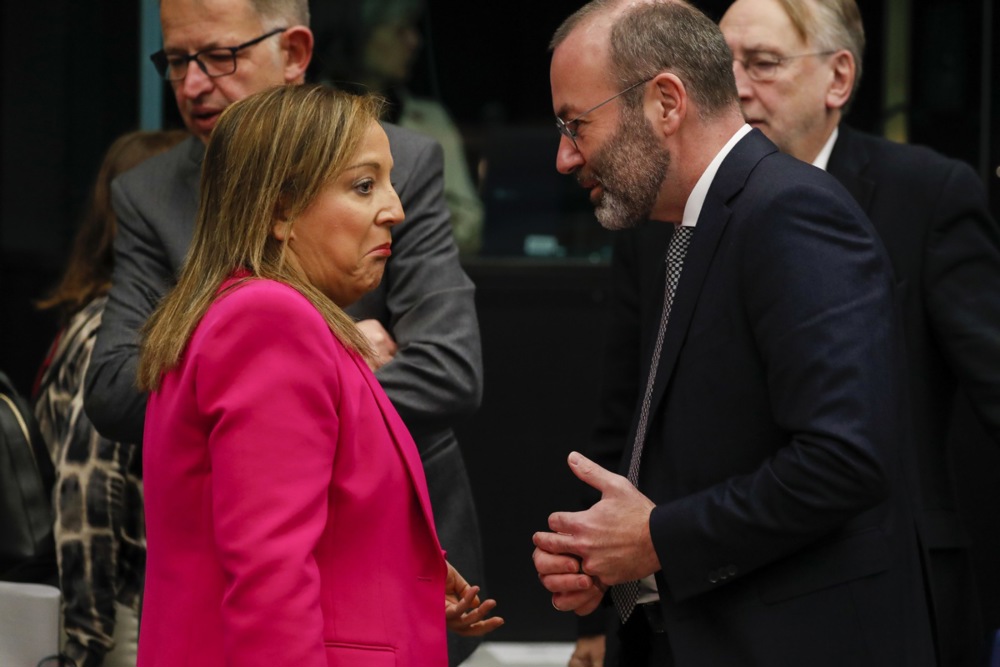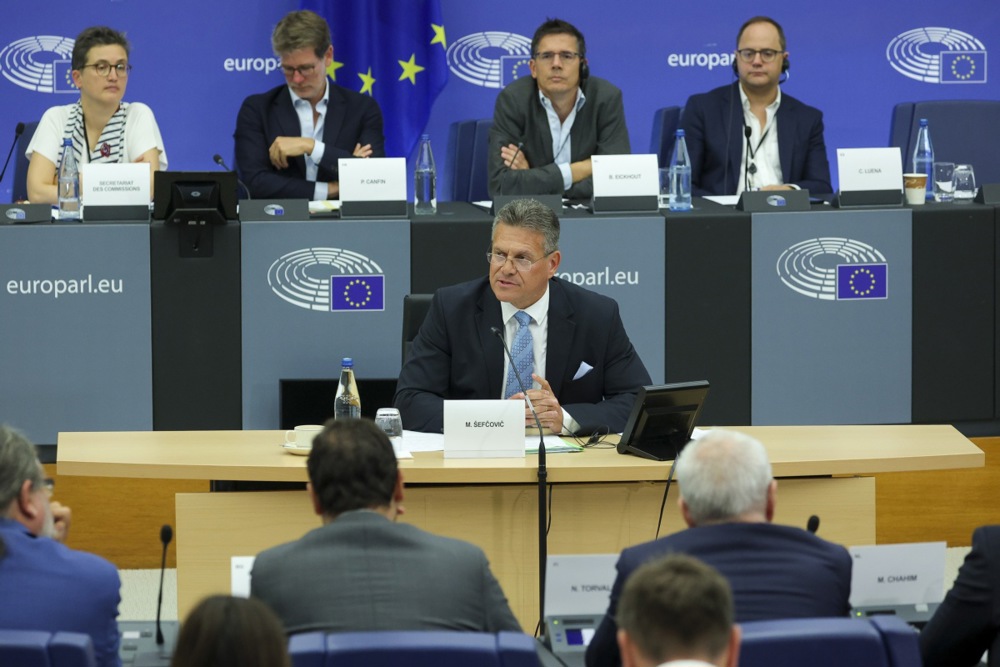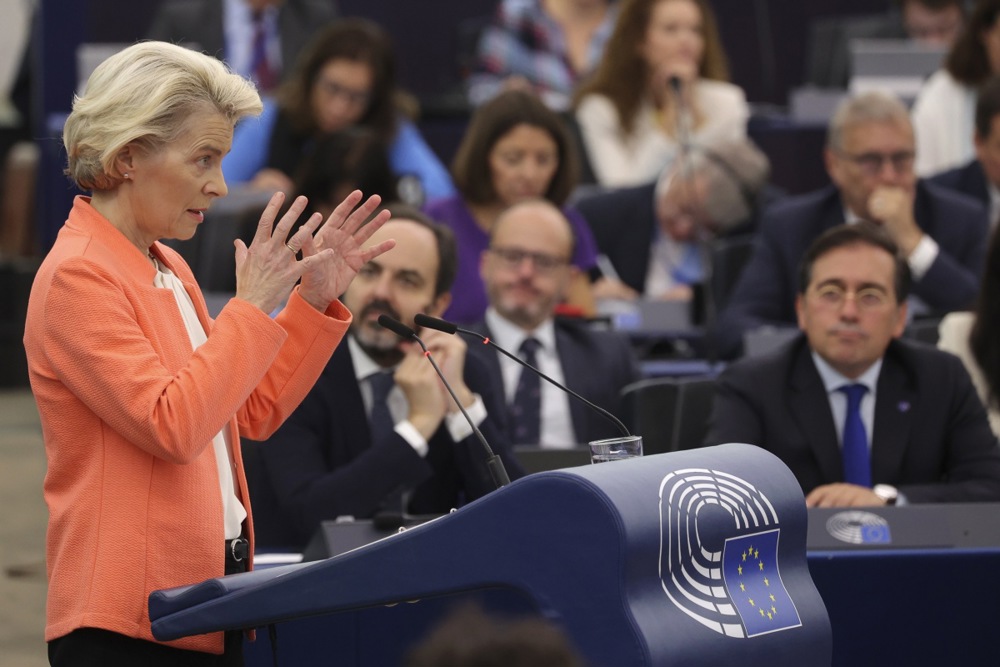Splits in the pro-EU European Parliament coalition are emerging after the Green Group broke ranks to oppose the bloc’s proposed budget reforms.
The Green Group, officially The Greens/European Free Alliance, at a Parliamentary plenary on January 17 labelled the reform package as a “return to austerity”, which members claim will not work and will hurt the bloc’s long-term projects.
The Council of Ministers, representing national governments, has agreed to update the spending rules that the EU and its Member States must follow. The reform aims to ensure Member States “balance budgets and reduce debt” over time.
Esther de Lange, an MEP with the centre-right EPP Group, said there were “no surprises” that “the extreme Right and the extreme Left of this house” would vote against the reforms.
She said she was “disappointed” by the Green Group’s opposition.
“[What] I find more regrettable is the position of the Greens, strong supporters of the Euro but against the very rules needed to keep it strong and stable. Very much like having your cake and eating it,” said de Lange, who represents the Christian Democratic Appeal (CDA) group.
“Sustainability, or ‘stewardship’ as I call it as a Christian Democrat, means respecting our planet but it also means not burdening the next generations with unsustainable levels of debt.”
Philippe Lamberts, a Brussels-born Belgian MEP and Co-President of the Greens/EFA Group, was quick to fire back.
He said the need for Europe to achieve climate neutrality, to fund Ukraine’s resistance against Russian aggression and deal with post-pandemic issues all highlighted the fact that the EU and its Member States needed to “step up” funding rather than rein it in.
“The new budgetary rules … are going to make this impossible,” he said.
Lamberts is known in EU circles for his often outspoken and unorthodox economic opinions.
At a recent talk he gave on Parliamentary sidelines, he stated that the “appetite” for public debt was being “fatally underestimated”. He said that major economies such as the US and Japan have significantly higher debt-to-GDP ratios than much of the EU.
Speaking to Brussels Signal on January 11, he said that certain details about public debt, such as who exactly the debt was owed to, were more important than the amount of debt that was owed.
Leading Green MEP @ph_lamberts says he is not averse to fighting alongside the “far-right” against what he fears will be a “disastrous” return of European Union austerity. https://t.co/rVRaeNquBN
— Brussels Signal (@brusselssignal) January 12, 2024
In the Strasbourg Parliamentary plenary, Lamberts said the proposed EU budgetary rules “are going to push our citizens towards populism”.
“If you’re going to vote for these rules then you’re going to choose impotence … if we are to vote for these rules, this is economic, environmental, geopolitical and democratic suicide.
“If Jacques Delors could see the rules we’re about to adopt he would remind [us] of the dreadful consequences they could have,” he added, referring to the popular EC President of the 1990s.
Lamberts was chastised by the Liberal Renew Group speaker, Irish MEP Billy Kelleher, who said voting against the EU’s budget reform “would be grossly irresponsible, even reckless”.
The reforms, Kelleher acknowledged, would be “difficult … to negotiate”.
“The various ideologies underpinning our different economic theories go to the heart of all our political groups,” he said.
"This was certainly a knee-jerk reaction, badly thought out, and it's something that we should insist does not happen," Irish MEP @BillyKelleherEU tells Brussels Signal amid calls to suspend aid to Palestine.
Catch the full interview at https://t.co/hxEVGsA51E pic.twitter.com/mNZRJuGK8d
— Brussels Signal (@brusselssignal) October 13, 2023
The package came under fire from the Left and Right for near-opposite reasons.
Gunnar Beck of the national-populist Identity and Democracy Group said the “loose” rules in the reform package would still lead to “increased spirals of debt … that [are] going to hold everybody hostage”.
Left Group MEP José Gusmão said the promises by centrist MEPs and the EC to protect EU citizens amounted to “fake publicity”.
The newly proposed budgetary rules “don’t have a single clause that protect … public investments”, he claimed.
Reforms would give the EC “a discretionary power which is unprecedented, imposing certain [economic] trajectories on countries, provided they comply” with EU diktats.
“There’s no respect of democracy here,” he said.
While still being pro-EU, Gusmão is not averse to criticising the bloc.
In a previous interview with Brussels Signal, for instance, he questioned Portugal’s ambitions regarding the EU, stating that, in his opinion, the country’s move to join it was a “bad decision”.
Portugal’s decision to adopt the euro was the “wrong step”, a left-wing MEP has said. https://t.co/Haxe4jqZKJ
— Brussels Signal (@brusselssignal) October 2, 2023





